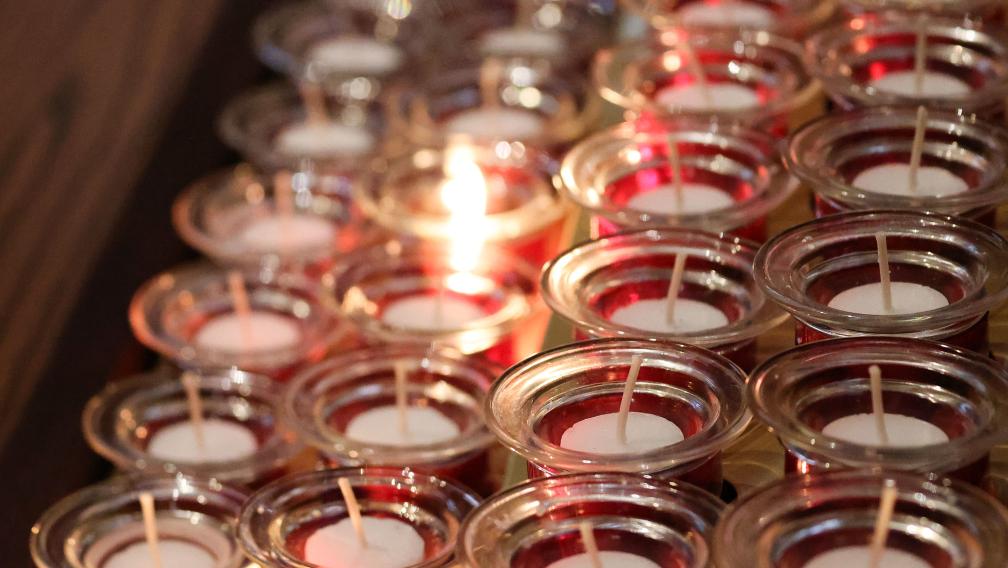Five Ways Into Sunday’s Scripture: Salt and Light

“You are the salt of the earth, but if salt has lost its taste, how can its saltiness be restored? It is no longer good for anything but is thrown out and trampled under foot.
“You are the light of the world. A city built on a hill cannot be hid. People do not light a lamp and put it under the bushel basket; rather, they put it on the lampstand, and it gives light to all in the house. In the same way, let your light shine before others, so that they may see your good works and give glory to your Father in heaven.
“Do not think that I have come to abolish the Law or the Prophets; I have come not to abolish but to fulfill. For truly I tell you, until heaven and earth pass away, not one letter, not one stroke of a letter, will pass from the law until all is accomplished. Therefore, whoever breaks one of the least of these commandments and teaches others to do the same will be called least in the kingdom of heaven, but whoever does them and teaches them will be called great in the kingdom of heaven. For I tell you, unless your righteousness exceeds that of the scribes and Pharisees, you will never enter the kingdom of heaven.”
Matthew 5:13–20
Words, words, words. We love them! In our history, language has been as revolutionary as fire making, and words have distinguished human from beast since time immemorial. And throughout history, there have been disparities between the words we say and what we do, and between who we say we are and who we reveal ourselves to be through our actions. Across the millennia of human civilization, we have used words to call out these disparities and point out hypocrisies, sometimes as pots to kettles.
This Sunday’s reading from Isaiah calls out the hypocritical nature of self-help performative piety that is unresponsive to the suffering of others. As we heard last week, Jesus’ Sermon on the Mount clearly describes who is blessed and how to be a blessing to one another. As his sermon continues this week, we learn that being a blessing — “salt and light” — is the fulfillment of God’s promise and doesn’t demand public professions of beliefs or selective enforcement of laws that dehumanize and diminish our already most vulnerable neighbors.
In an oft-quoted saying from Ralph Waldo Emerson, secular modernity gives us a slightly pithier way to express virtue-signaling hypocrisy: What you do speaks so loudly, I can’t hear what you say.
The original idea was published in 1875 in a book of essays entitled Letters and Social Aims. The actual excerpt is about good and bad manners, or one’s social presentation. Some of his elitist perspectives may seem to prove his own flaws, but he references good, or virtuous, character as an overriding force in all manner of manners and class, including words and conversation. It’s less pithy and goes like this: “…Don’t say things. What you are stands over you the while, and thunders so that I cannot hear what you say to the contrary.” Interestingly, there’s more to the paragraph, which is seldom quoted: “…A lady of my acquaintance said, ‘I don’t care so much for what they say as I do for what makes them say it.’”
Perhaps Emerson’s lady acquaintance and Paul’s first epistle to the Corinthians were both referencing the Holy Spirit’s presence or absence in our words, actions, and intentions. When present, the Holy Spirit can most purely animate the body of Christ to be salt and light to the world, God incarnate.
—Kathryn Carroll
THEOLOGY
The Rev. Dr. Wil Gafney’s womanist theology sets Isaiah’s prophecy to the Judeans in our 21st century “’hood.”
SOCIAL JUSTICE
An interview from Messy Jesus Business with Pádraig Ó Tuama on language and its capacity to be salt and light, and to harm: “Sometimes, language can be the easy hurdle. The actions that correspond to wisdom can be much more difficult to enact.”
VISUAL ART
Though his body was brutalized, Tyre Nichols’ light remains in his photography.
MUSIC
A jaunty old favorite: “Light of the World” from Godspell.
POETRY
“A Prayer” by Claude McKay. “In this poem the Jamaican-born Harlem Renaissance poet Claude McKay asks for God’s light, truth, and breath to fill him. Admitting to his struggles with self-indulgence, he seeks to walk uprightly, soundly, ‘mid the discordant noises of the day.’” —Victoria Emily Jones
Get the Five Ways In Your Inbox
Sign up to receive reflections and updates from the Faith Formation & Education team.
Coming Soon
This Sunday at 10am, the Discovery community continues an exploration of spiritual friendship as Mirabai Starr, teacher and author of Wild Mercy: Living the Fierce and Tender Wisdom of the Women Mystics, considers mysticism and the relationship between Teresa of Ávila and St. John of the Cross.
Join a Discovery planning meeting Wednesdays, February 8 or 15, at 6:30pm. This will be a wonderful time to catch up with each other, hear about the programs that have been life-giving for us this past year, and dream about next year’s offerings. For more information and to receive the Zoom invitation, email ChristianFormation@trinitywallstreet.org.
Next Sunday, February 12, at 1pm, Trinity Talks: Art as a Medium for Change continues when artist and MacArthur “Genius” LaToya Ruby Frazier joins the Very Rev. Dr. Kelly Brown Douglas to discuss the transformative power of art.